Launched and funded by the EU as part of the Circular Economy Action Plan, the Circular Cities and Regions Initiative (CCRI) focuses on implementing the circular economy across Europe’s cities and regions.
The EU’s transition to a circular economy will reduce pressure on natural resources and create sustainable growth and jobs. It will also help achieve the 2050 climate neutrality target set out in the European Green Deal. Europe’s cities and regions are best placed to drive this transition, with many already drawing up their own plans.
The CCRI aims to increase synergies among projects and initiatives, disseminate relevant knowledge, and give greater visibility to best practices. Combining this knowledge sharing with technical and financial support, it offers comprehensive support to stakeholders across Europe’s cities and regions. Find out more
Latest news

CCRI event shines light on the cities and regions pioneering Europe’s circular future


Partner up, learn, and grow: Start your Twinning journey with the CCRI

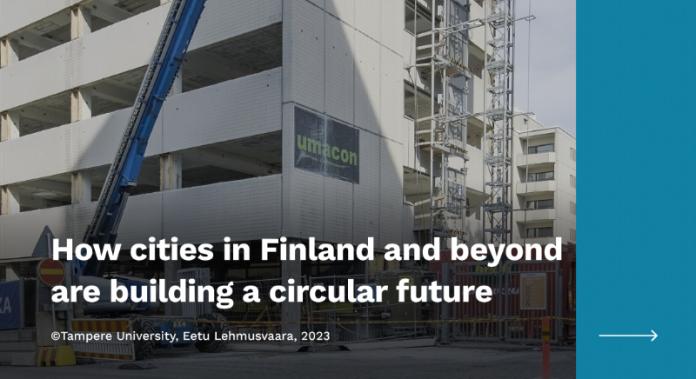
In the right circles: Europe’s cities and regions lead the green transition

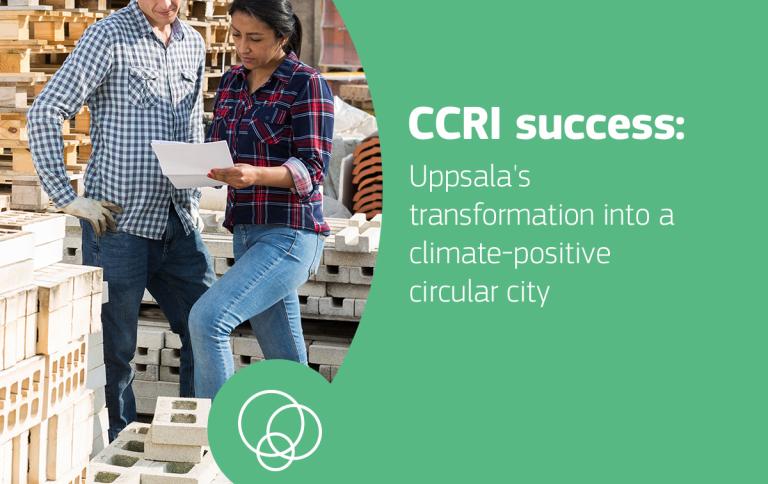
CCRI success: Innovative building material marketplace transforms CCRI Pilot Uppsala into climate-positive circular city

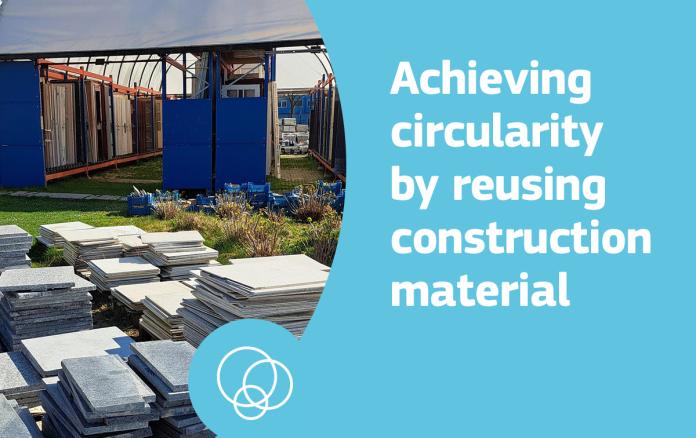
CCRI Pilot Flanders visits Rotor to learn about construction material reuse


New Compass and Map tools let you discover CCRI services and beneficiaries across Europe


The Circular Cities and Regions Initiative: Three years on

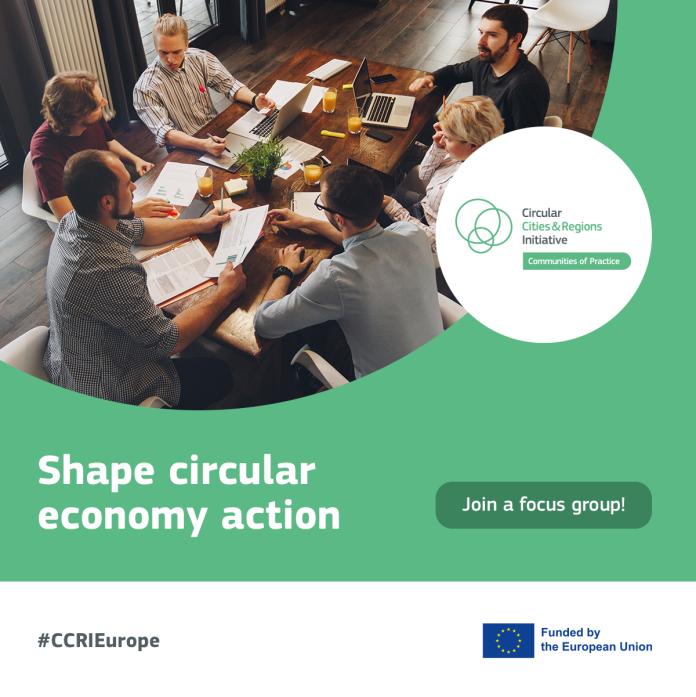
Have your say – help us to set up the CCRI Communities of Practice


The power of citizen participation in circular economy: opportunities, benefits, and challenges

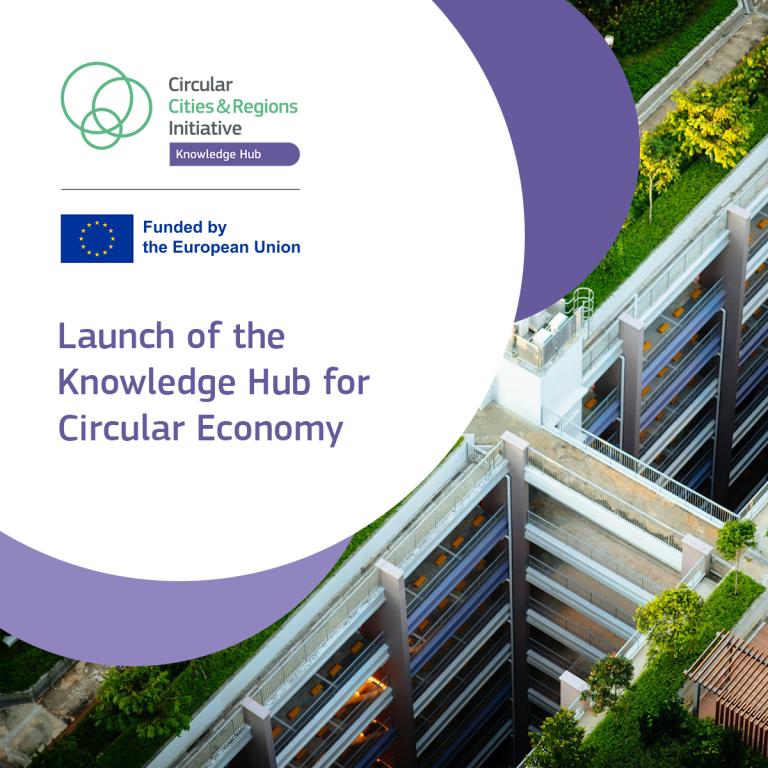
Launch of the CCRI Knowledge Hub!


CCRI Newsletter archive: All the issues so far

Frequently Asked Questions (FAQ)
Below is a selection of the most commonly asked questions about the CCRI.
If you have a question that is not answered here, you are welcome to contact our Helpdesk at helpdesk@circular-cities-and-regions.eu
What is the Circular Cities and Regions Initiative (CCRI)?
The CCRI is a collaboration and support scheme of the European Commission, launched by the Directorate-General for Research and Innovation as part of the European Circular Economy Action Plan 2020. The CCRI aims to support Europe’s green transition by boosting circularity at local and regional levels. It focuses on the implementation of Circular Systemic Solutions across Europe’s cities and regions. The CCRI therefore provides a local contribution to the implementation of the European Green Deal and the European Bioeconomy Strategy.
In order to build capacity and drive economic growth, it works to increase collaboration and knowledge sharing between cities and regions in the EU and the Horizon 2020 Associated Countries. The CCRI also aims to boost innovation and upscaling, which are essential for making the circular economy more widespread and mainstream.
Funded by the European Commission, the CCRI Coordination and Support Office (CCRI-CSO) is responsible for facilitating the overall coordination and implementation of the initiative.
Find out more about the CCRI.
What makes the CCRI unique?
The CCRI is unique by nature of its architecture. It is a unique, multi-stakeholder collaboration and support scheme. The CCRI assists stakeholders across Europe’s cities and regions, including regional and local authorities, industry representatives, research and technology organisations, and civil society. Combining technical and financial support, it provides comprehensive support over the whole life cycle of local and regional circular economy initiatives.
In order to build capacity and drive economic growth, the CCRI works to increase collaboration and knowledge sharing between EU cities and regions. It also aims to boost innovation and upscaling, which are essential for making the circular economy more widespread and mainstream.
The CCRI also combines this knowledge sharing with financial and technical support.
What is a territorial cluster?
A territorial cluster is a socio‑economic, geographical and environmental system composed of all relevant actors and including at least one public authority. This cluster is ready to implement, demonstrate and facilitate the replication of at least one Circular Systemic Solution in a specific territory.
What is the CCRI Coordination and Support Office?
Funded by the European Commission, the CCRI Coordination and Support Office (CCRI-CSO) is at the heart of the overall CCRI. The CCRI-CSO is responsible for facilitating the implementation of the CCRI and is the main coordinating body for its activities.
The CCRI-CSO is made of an international, multidisciplinary team of experts in the field of circular economy offering practical, tailor-made support to speed up circular economy implementation in cities and regions.
What is a Circular Systemic Solution?
A Circular Systemic Solution is a project aiming to achieve an overall net sustainability added value in a local context by applying innovative circular models. These projects are holistic and seek to achieve minimal trade-offs. They are systemic in the sense that they involve different actors and value chains, potentially involving more than one level of government and governance, address a variety of circularity issues, and consider all causal factors that may enable or hinder a transition toward the circular economy at local level.
A Circular Systemic Solution is systemic also in its impacts and outcomes, addressing and involving economic, social and environmental aspects. Circular Systemic Solutions should address the major challenge of effectively applying the circular economy concept beyond resource management and recovery in the waste and water sectors.
What support do the Pilots benefit from?
CCRI Pilots benefit from:
-
Tailored support from circular economy experts: The CCRI Coordination and Support Office (CCRI-CSO) is made of a multidisciplinary team of experts in the field of circular economy. This team supports the Pilots in developing, implementing and improving Circular Economy Action Plans, Circular Economy Investment Plans and Circular Systemic Solutions. The CCRI-CSO has also developed a dedicated CCRI Methodology, which provides the CCRI community with step-by-step guidance to speed up circular economy implementation.
-
Facilitated monitoring and self-assessment: The CCRI-CSO also provides the Pilots with guidance to improve their capacity to monitor circular projects and therefore follow their progress in the transition, thanks to a dedicated self-assessment tool (under development).
-
Knowledge sharing: The CCRI-CSO facilitates the exchange of knowledge and good practices between Pilots and with Fellows, in particular through dedicated thematic working groups on specific circular economy macro-areas, practices and implementation.
What support do the CCRI Fellows benefit from?
In contrast to CCRI Pilots, CCRI Fellows receive no direct support or technical guidance. However, they can benefit from the following:
-
Facilitated capacity building and peer learning: Easy access to various tools and resources to address knowledge or capacity gaps, plus opportunities to participate in grouped activities (for example webinars and thematic working groups) to exchange knowledge and good practices with the Pilots and other Fellows.
-
First-hand information: Access to a wealth of relevant information, including stakeholder mapping, repository of key publications and reports, regular updates on relevant events and calls, tailored to their interests.
-
Enlarged community and collaboration opportunities: Expand their network, gain connections in peer-to-peer learning processes with the Pilots, and identify relevant partners.
-
Increased visibility: Enjoy more visibility for their organisation through the dissemination activities of the CCRI Coordination and Support Office, which shares updates related to their activities.



